Contents
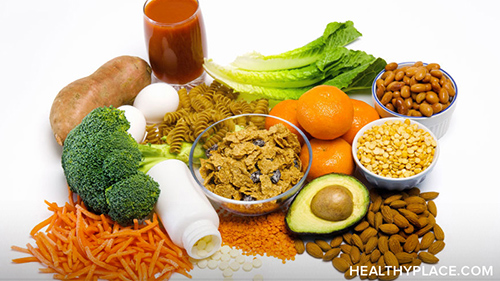
Vitamin B1 sources (thiamine) are found in many foods, although in small amounts. The best-known sources are Sunflower seeds, wheat germ, whole grains, and brewer’s yeast. All of these are better than pork, which is erroneously considered the best source of this vitamin. Refined products such as flour, sugar, and white rice contain little.
Antivitamin B1 factors: Some substances in tea are antagonistic to vitamin B1. Thiaminase is an enzyme in raw or poorly cooked fish and shellfish that destroys this vitamin.
Vitamin B1 Deficiency and Function
Nervous disorders (apathy, fatigue, irritability, depression), digestive disorders (lack of appetite, slow digestion, constipation). In serious cases, polyneuritis (inflammation of the peripheral nerves) and beriberi.

Function: The production of energy. Thiamine is essential for the metabolism of carbohydrates in the energy-producing process in the body. Hence, eating unrefined carbohydrates (whole grains, brown sugar, or molasses), which contain the vitamin B1 necessary for these processes, is essential.
Vitamin B1 is also essential for the health of the nervous system’s stability: Thiamin, thanks to its ability to maintain the nervous system in optimal condition, promotes mental and psychological health and balance.
Vitamin B1 benefits include protection against nervous disorders, nicotine addiction, drug addiction, and alcoholism.
Loss of vitamin B1 due to food processing: Bread baking causes a 15% to 20% loss of vitamin B1; cooking vegetables or grains, 25%; cooking meat or fish, 30% to 50%.
Top Plant-Based Vitamin B1 Sources
Sunflower Seeds
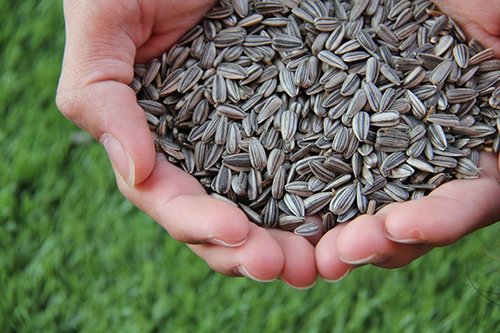
Sunflower seeds are are among the top vitamin B1 sources and is an essential chemical in the body. It helps turn carbs into energy and ensures the heart and nervous systems work correctly. Sunflower seeds, which have 28 grams of weight, can give you a lot of the daily recommended amount of vitamin B1.
This makes them an excellent snack for people who want to get more of this vital nutrient. Beyond vitamin B1, sunflower seeds are also rich in healthy fats, protein, fiber, and other vitamins and minerals, including vitamin E, magnesium, and selenium. Their versatility makes them easy to incorporate into diets, whether eaten raw, roasted, or added to salads, breads, and other dishes, offering a delicious and nutritious way to enhance your nutritional intake.
Wheat Germ
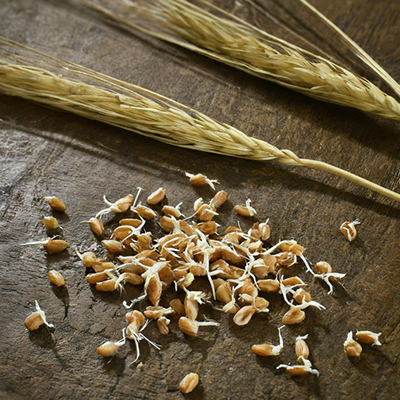
Wheat germ is a remarkably nutritious member of the top vitamin B1 sources. The brain, muscles, and nervous system need to have enough of this vitamin. A small serving of wheat germ can deliver a substantial amount of the daily recommended value of vitamin B1, making it a powerful ally for maintaining energy levels and cognitive function.
Along with vitamin B1, wheat germ contains other nutrients like protein, fiber, and healthy fats. Vitamin E, folate, and zinc are just a few of its vitamins and minerals. Wheat germ is a very nutritious food that can be used in many recipes. It can be added to smoothies, yogurt, breads, and cereals. It is an easy and effective way to get more nutrients your body needs.
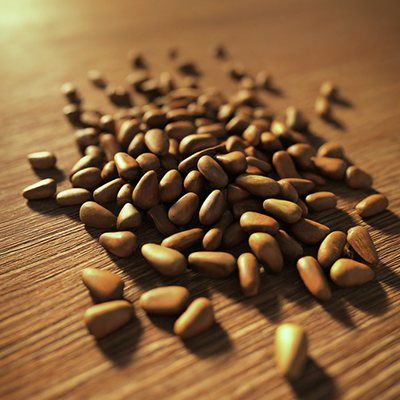
Pine Nut
Pine nuts are an underestimated food on the list of top vitamin B1 sources. They are loved for their mild, sweet flavor and health benefits, especially the high amount of vitamin B1, or thiamine, they contain.
Pine nuts also contain an essential set of other nutrients, including vitamin E, magnesium, and zinc. These nuts are a tasty way to get extra minerals and vitamins that are also good for you. As a snack, they may be put into pesto, sprinkled over salads, or devoured.
Brazil Nut
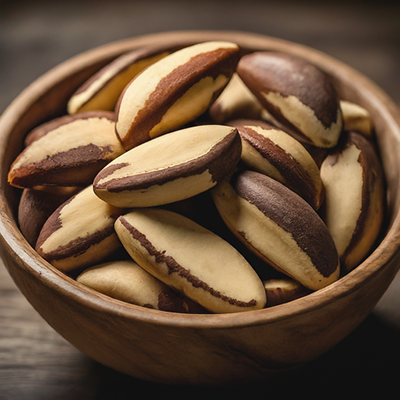
Brazil nuts are highly valued for their rich, creamy texture and high nutritional value. For example, they are a go to for those needing high quality vitamin B1 sources. A daily intake of Brazil nuts can provide the recommended daily allowance of vitamin B1.
Besides having a lot of vitamin B1, Brazil nuts also have a lot of selenium, an essential mineral for protecting against free radicals and keeping the thyroid working properly. So they are very healthy because they have healthy fats, protein, magnesium, and zinc. As little as a handful of Brazil nuts daily can give you a big nutritional boost, improving heart health, immune system function, and overall health. Their remarkable versatility enables effortless incorporation into various dishes, including salads, snacks, baked goods, and more. This makes them a delicious option to increase nutritional intake.
Soybean
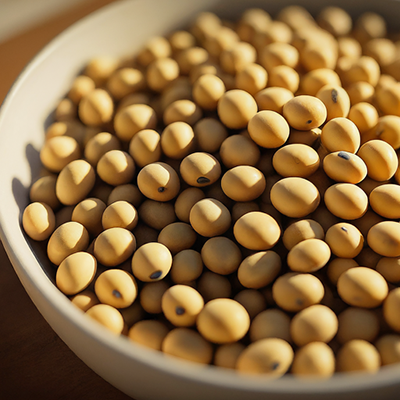
Soybeans are a cornerstone in the plant-based nutrition world, acclaimed for being the atop the list of amazing vitamin B1 sources. Including soybeans in one’s diet can significantly contribute to achieving the recommended daily intake of vitamin B1, thus supporting overall energy levels and neurological health.
Besides iron, calcium, and magnesium, soybeans are remarkable sources of fiber, essential fatty acids, various vitamins and minerals, and premium protein. Comprised of all nine essential amino acids, they are among the few plant sources of complete protein. Whether consumed as whole soybeans, tofu, tempeh, or soy milk, these legumes offer a versatile and nutrient-dense option for enhancing dietary patterns and supporting health and wellness with their substantial vitamin B1 and comprehensive nutritional profile.
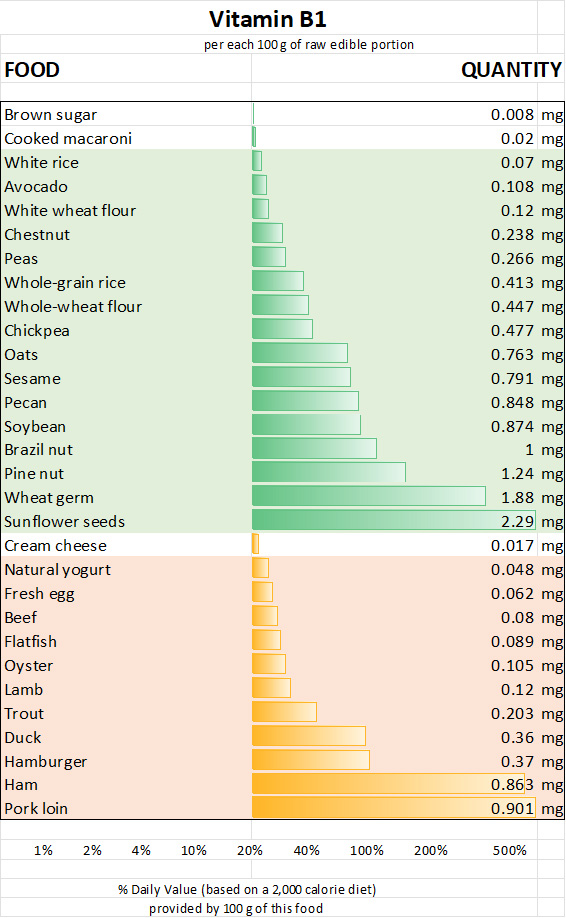
DISCLAIMER: All content on this website is presented solely for educational and informational objectives. You should not rely on the information provided as a replacement for advice, diagnosis, or treatment from a qualified medical expert. If you are pregnant, nursing, or have any preexisting medical concerns, you should talk to your doctor before using any herbal or natural medicines.
REFERENCES
- George D. Pamplona-Roger, M.D. “Encyclopedia of Foods and Their Healing Power.” George D. Pamplona-Roger, M.D. Encyclopedia of Foods and Their Healing Power. Trans. Annette Melgosa. Vol. 1. Chai Wan: Editorial Safeliz, 2005. 390. Print. [Vitamin B1 sources]
- National Institutes of Health: https://ods.od.nih.gov/
- National Centre for Complementary and Integrative Health: https://ods.od.nih.gov/factsheets/Thiamin-HealthProfessional/
- United States Department of Agriculture: https://agdatacommons.nal.usda.gov/articles/dataset/USDA_National_Nutrient_Database_for_Standard_Reference_Leg
